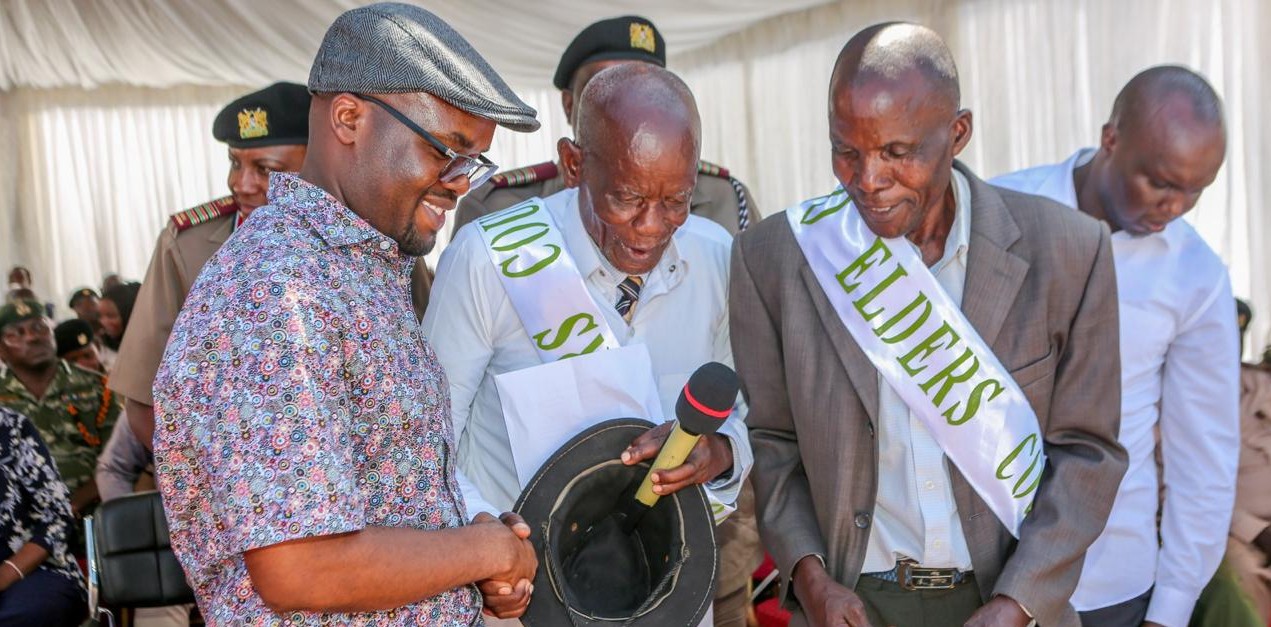Kenya’s village elders poised for formal recognition after years on the sidelines

The proposed policy seeks to define who qualifies to serve as a village elder, outline their responsibilities, and offer training and logistical support to help them carry out their duties effectively.
For the first time in Kenya’s history, village elders who have long been central to community leadership are now on the path to official state recognition.
Often called upon to resolve conflicts, offer guidance, and hold communities together, elders have historically performed their roles without pay, training, or formal acknowledgement from government structures.
More To Read
- From fires to missing children: How Eastleigh’s communal spirit responds to crisis
- Why most Eastleigh residents, just like rest of Kenyans, can't distinguish Nyumba Kumi from Community Policing
- Report: Deep-rooted police issues fuel public distrust despite years of community policing
- Gov’t seeks public views on plan to recognise, pay village elders
- Senators urge improved terms, protection for village elders and Nyumba Kumi leaders
- Garissa elders warned against using maslah courts to resolve criminal cases
That is now set to change through a new initiative launched by the Kenya Kwanza administration.
The Ministry of Interior has begun public engagement forums on two critical documents: the Draft National Government Village Elders Policy and the National Government Coordination (Administrative Units) Regulations, 2025.
These frameworks are intended to formally include village elders in Kenya’s administrative system.
Interior Cabinet Secretary Kipchumba Murkomen described the move as “a transformative milestone in Kenya’s journey towards devolved governance.”
He said the government is working to close the gap between citizens and public institutions by enhancing service delivery and improving local inclusivity.
The proposed policy seeks to define who qualifies to serve as a village elder, outline their responsibilities, and offer training and logistical support to help them carry out their duties effectively.
For years, these elders have acted as custodians of peace and culture, often in the absence of any official backing.
Respected
Their work has been deeply valued by local communities, but this respect was never reflected in law or policy.
The reforms will allow them to continue their traditional roles, but also assign them formal duties such as recording incidents, educating communities on civic matters, and serving as connectors between the state and citizens.
Interior Principal Secretary Raymond Omollo said elders are “the invisible thread that holds society together.”
He called their recognition “a moral and national imperative whose time has come.”
The draft policy has been developed with wide-ranging input from ordinary Kenyans, Nyumba Kumi leaders, religious and community-based organisations, civil society, and law enforcement.
Officials say this participatory approach ensures the final product will reflect the real needs of grassroots communities.
One key component of the policy is the official mapping and gazettment of villages. This would bring long-awaited structure to these local jurisdictions and ensure that elders have clearly defined areas of responsibility, supported by the government.
Murkomen noted that formalising the role of elders fulfils both constitutional and ethical obligations.
“It is about acknowledging the people who, for years, have done the work of nation-building without demanding the spotlight,” he said.
Top Stories Today












































